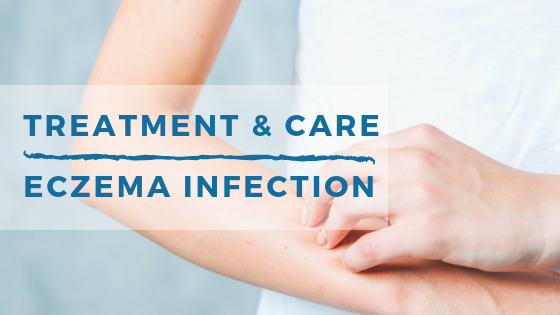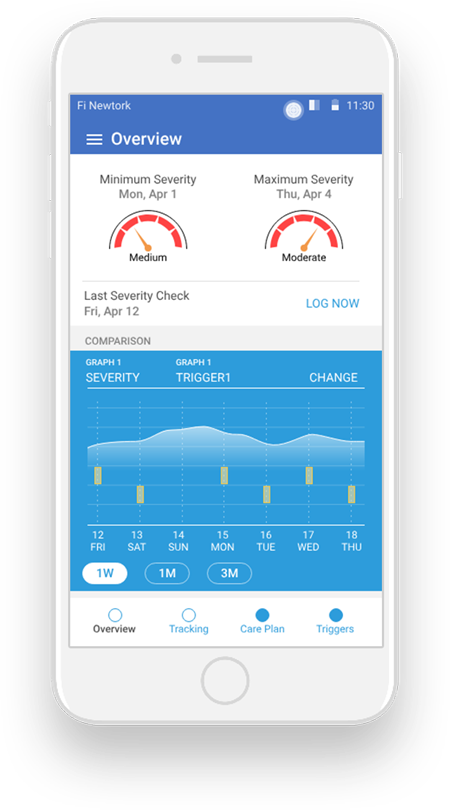Treatment & Care for Eczema Infections

Table of Content
Abstract
Eczema also commonly know known as Atopic Dermatitis can become so infected that the person has to go to the hospital and stay over for treatment, this can be very upsetting, especially for youngsters which means missing days of school. Some infections, such as eczema herpeticum (a viral infection), are serious and need medical attention right away, you don’t have any option and in case, if left untreated it may cause sepsis which can be life-threatening.
Some kinds of skin infections can be treated with antibiotics (in the form of tablets, creams, injections or IV drips). Other kinds of skin infections are fungal (such as ringworm) and are treated with antifungal creams or tablets.
It is very obvious that one should immediately visit the physicians for advice to fight back the infection and to find a perfect eczema cure but as it always said that “prevention is better than cure”. Let’s check out what all things can be done to avoid infections and smooth eczema management.
Prevention measure to avoid Eczema Infection
- It is important to keep your skin as healthy as possible to avoid infection, especially during an Eczema flare. When flares occur, a person should follow the recommended treatment plan to help manage and reduce the flare.
- If you are suffering from Eczema, avoid contact with anyone who has cold sores. Cold sores are highly infectious. Since the presence of Eczema reduces the immunity against viral infections, eczematous lesions can get infected easily.
- Frequent hand washing – As we touch surfaces all the time, it is best to wash our hands frequently, especially if they get contaminated with germs.
- Avoid touching your eczema lesions unnecessarily as you can introduce germs to the rash
- Avoid scratching – Scratching can damage the skin and break the natural surface barrier for infections. Cut and maintain your nails so that it doesn’t hurt much in case you scratched unknowingly
- Keep the rashes and skin moisturized well for extra protection.
- Avoid trigger factors which worsen eczema (Synthetic fabrics, dyes, soaps etc)
- Follow a healthy diet and avoid foods that you may be sensitive for e.g. nuts and dairy products
- Keep your skin as clean as possible
- Children who have eczema should be monitored closely and reminded not to scratch.
- If flares of Eczema occur, seek treatment early and stick to the recommended treatment plan. The more severe your eczema, it is more prone to infection.
- Keep your environment clean, free from dust and animal dander
- Manage your stress – as stress is known to trigger eczema, managing your stress well can reduce flares and thus infections. Practice relaxation techniques, yoga, and meditation.
You can manage your care plan and daily routine by an eczema tool to check what care plan is working for you and stick to it for effective results.
What you can do as a home remedy?
Bath/shower
- Bath or shower every day to clean the skin.
- Use warm water and a soft cloth to gently soak and lift off any crusts.
- Use a soap-free wash e.g. non-ionic cream, aqueous cream, emulsifying ointment. Don’t use soap and bubble baths as these make the skin dry.
- Antiseptic baths two times a week can help. See bleach bath instructions.
Steroid creams and ointments
- Apply steroid to all red and itchy skin (active eczema) at-least once a day. Immediately after the bath is best.
- Use enough to make the skin shiny. Steroid for the face/neck: Steroid for the body/arms/legs:
- When the skin is no longer red and itchy stop using the steroid but keeps it moisturized. If eczema comes back, start using the steroid again
Moisturizer (emollient)
- Smooth on lots of moisturizers many times a day to keep the skin soft.
- Apply all over not just where there is eczema.
Treatment for Eczema Infection
Once the infection breaches your prevention, immediately look for treatment.
On approaching the medical care, the physician may take skin from the site which will be sent for pathology testing. The Microbiological testing of the smear helps to identify the type of infection. The mode of treatment will majorly depend on the result of the test whereas empirical treatment can be started without delay. According to the results of the culture and antibiotic sensitivity testing, treatment can be modified.
- If the infection is mild an antibiotic cream or ointment will be prescribed. e.g: Neosporin, Polysporin, Fucidine.
- Sometimes the antibiotic is combined with a steroid. e.g: Betnovate N, Fucicort, Corticosporin.
- When the infection is widespread, an oral antibiotic will be added. e.g: a course of Flucloxacillin or Co-Amoxyclav to fight the infection better.
- To infants and children with infected Eczema, oral antibiotics will be given in syrup form, whereas for adults, tablets and capsules are preferred.
- If the patient is ill with fever and chills, your doctor will admit you and treat the infected Eczema with IV antibiotics.
- Sometimes steroids can worsen infections. Topical immune-modulators like Protopic ointment and Elidel cream are preferred to steroids by some doctors when treating infected Eczema.
- Viral infections are treated with oral antiviral medications e.g: Oral Acyclovir for 1 week.
Sometimes an antiviral cream (Herperax) can be applied topically over the rash. Eczema which is infected with a virus can heal spontaneously with time even without treatment with anti-viral medications. However, if it doesn’t heal seek treatment. - If Eczema Herpeticum is severe, hospital admission is required and drugs will be given via a drip.
- If there is a pain, pain relief can be done by Tylenol (Acetaminophen) or Advil (Ibuprofen). These are also available as over the counter products. Make sure that you adhere to the proper dose and dosage instructions.
- Treatment of Fungal infections of Eczema – Use of a cream or ointment containing antifungal and steroid combinations.
e.g: Candacort (Clotrimazole and Hydrocortisone)
Ecocort (Econazole and Triamcinolone)
Candid B (Betamethasone and Clotrimazole)
Once the inflammation is controlled you may be treated with a pure antifungal cream or an ointment. Sometimes your doctor may first control the fungal infection with a pure antifungal cream or ointment rather than a combination.
e.g: Clotrimazole (Lotrimin), Lamisil (Terbinafin), Tolnaftate
Once the fungal infection is controlled treatment will follow with usual topical products that control the Eczema rash. - Sometimes fungal infections can be widespread especially in immune-compromised patients such as those who suffer from immunity disorders, AIDS, Cancer, etc. Then a course of oral or intravenous antifungal medication will be added depending on severity.
In addition to the specific treatment of infection, the usual treatment for Eczema should also be followed, such as;
Moisturizing the skin well – Moisturize your skin adequately with a good emollient twice a day, especially after a bath, while the skin is still damp. Emollients with minimal fragrance, which are alcohol and paraben-free, are the best. Ingredients in a good moisturizer are glycerol, Dimethicone, aqueous cream, Lanolin oil, Shea butter, Argon oil, cocoa butter, etc. Moisturizers are best when used in the Ointment form rather than a cream form. Choose the best emollient which is suitable for your skin or get a prescription from your doctor which will be the best for you.
Management of itching with an antihistamine – These are also available as over the counter products.
e.g: cetirizine (Alerid, Cetzine), Loritidine (Claritin, Claratyne), fexofenadine (Allegra) or Chlorpheniramine (Piriton) to reduce itching.
As antihistamine products prevent you from the urge of scratching it will help the control of further skin damage and infection.
Wet dressing or bandages to cover and treat eczema rash – This helps to maintain moisture and to prevent further damage to the skin by scratching. However, bandages are preferred once the infection is controlled. Avoid applying bandages when eczema is infected.
When to look back to your physician
- If you find that the infection is not at all improving after 2–3 days of treatment
- If your child is missing school due to severe skin infections or not sleeping well because of eczema
- Once you complete the course and find the symptoms are recurring
GET IN CONTROL OF YOUR ECZEMA
Use our AI tool to check the severity of Eczema and keep track of your Eczema progress.



